ASTANA – Last week’s state-of-the-nation address delivered by President Kassym-Jomart Tokayev has raised many issues critical for Kazakhstan and its future. The nuclear topic was one of them, reflecting Kazakhstan’s significant history related to nuclear issues.
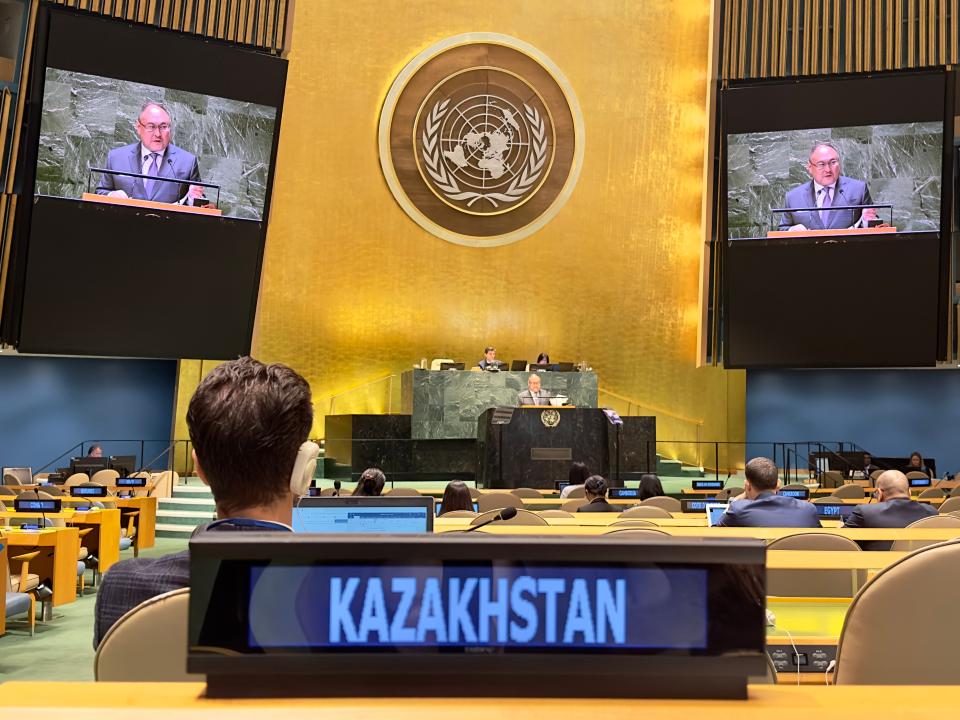
Kazakhstan’s Permanent Representative to UN Akan Rakhmetullin addresses the The high-level plenary meeting of the United Nations General Assembly. Photo credit: Kazakh Foreign Ministry.
In the past, Kazakhstan was home to one of the world’s largest nuclear test sites, the Semipalatinsk test site, where the Soviet Union conducted 456 nuclear tests. Following the collapse of the Soviet Union, Kazakhstan voluntarily gave up its nuclear arsenal, becoming a non-nuclear-weapon state and a staunch supporter of nuclear nonproliferation and disarmament efforts.
The proposal to declare the International Day against Nuclear Tests on Aug. 29 is one of Kazakhstan’s major initiatives in this field. The United Nations supported it in its resolution in December 2009. Aug. 29 marks both the day of the first Soviet nuclear weapons test in 1949 at the Semipalatinsk site, and the day the site was officially closed in 1991.
Humanitarian impact
To commemorate the important date on Aug. 29, Astana hosted a regional conference bringing prominent nuclear nonproliferation experts and policymakers to discuss the humanitarian impact of nuclear weapons and the Nuclear-Weapon-Free Zone in Central Asia.
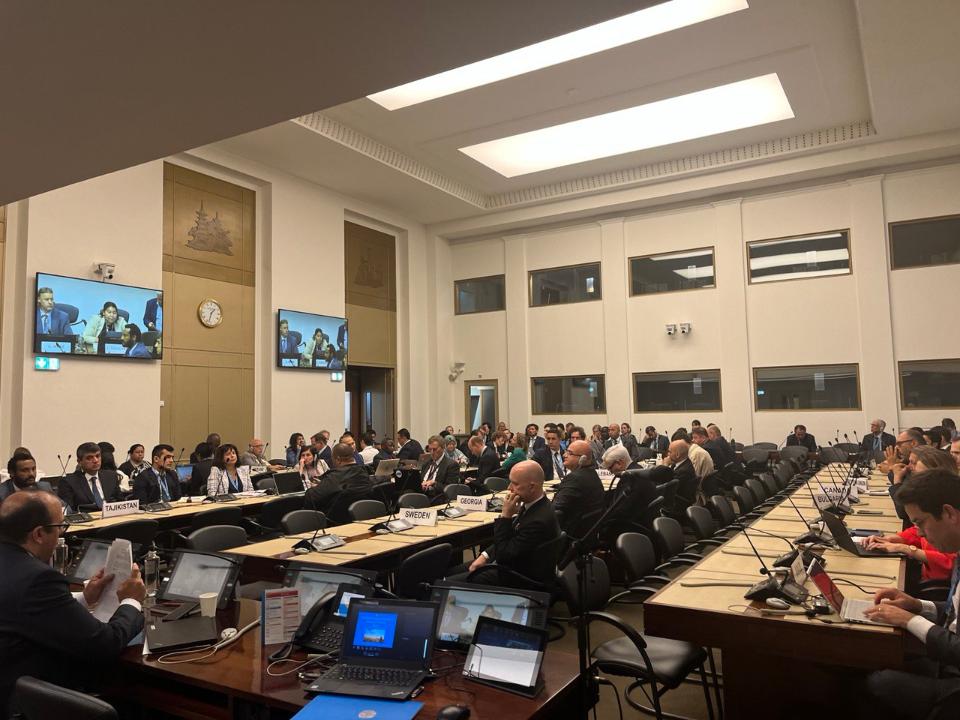
Diccussions at the UN Office in Geneva. Photo credit: Kazakh Foreign Ministry.
The conference participants focused on the humanitarian considerations related to developing, testing, and using nuclear weapons and international and regional legal instruments. Firsthand accounts from a survivor of nuclear tests were shared, shedding light on the real impact.
The conference was organized by the Ministry of Foreign Affairs of Kazakhstan, the Center for International Security and Policy, the International Committee of the Red Cross, and non-governmental organizations such as the International Campaign to Ban Nuclear Weapons (ICAN) and Japan’s Sokka Gakkai International.
Addressing the conference, First Deputy Foreign Minister Kairat Umarov emphasized the importance of upholding the global ban on nuclear testing and noted the significance of work in this area as a critical element of collective efforts to achieve a nuclear-weapon-free world.
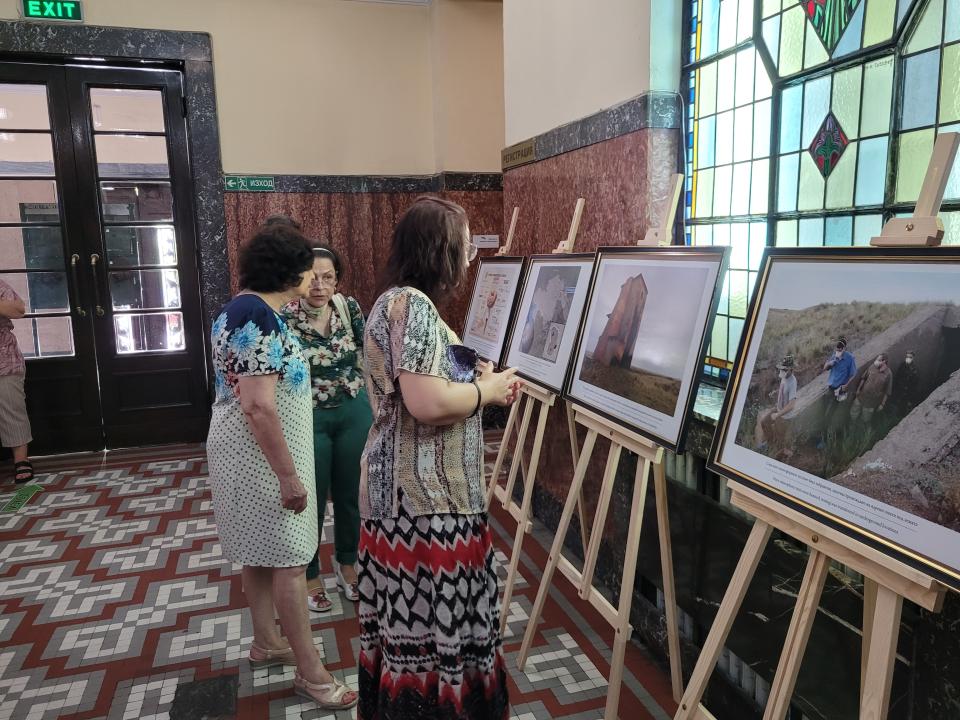
Photo exhibition in Sofia. Photo credit: Kazakh Foreign Ministry.
Kazakhstan is no stranger to nuclear issues and has been a staunch supporter of global nuclear nonproliferation efforts. The country experienced nearly 500 nuclear tests conducted by the Soviet Union at the Semipalatinsk Test Site in eastern Kazakhstan.
After the collapse of the Soviet Union, the nation voluntarily dismantled once the world’s fourth-largest nuclear arsenal. Nearly 1.5 million people continue to suffer the consequences, and environmental rehabilitation is ongoing in the area affected by massive radiation fallout.
Experts agree more measures need to be taken to amplify the voices of survivors.
“Though it is not possible to provide a humanitarian response that can undo what has happened to people and the environment, it is still a humanitarian imperative to work to address the impacts in communities today as much as states and their partners are able to,” said Elizabeth Minor, ICAN steering group member.
Treaty on the Prohibition of Nuclear Weapons
The panel session on the Nuclear-Weapon-Free Zone in Central Asia featured discussions about Kazakhstan’s activities in the working group of the Treaty on the Prohibition of Nuclear Weapons (TPNW) on assistance to victims of nuclear tests and environmental remediation, as well as Kazakhstan’s initiative to establish an International Trust Fund.
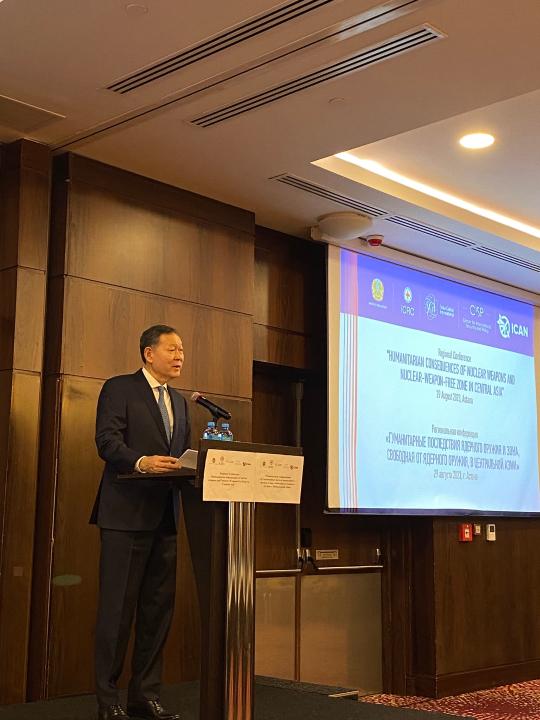
Kairat Umarov addresses the conference. Photo credit: Kazakh Foreign Ministry.
The TPNW was adopted in July 2017 and entered into force on Jan. 22, 2021, upon reaching 50 ratifications. For the first time in history, the treaty established an international legal ban on possessing nuclear weapons – the last legally not prohibited type of weapons of mass destruction. TPNW has 68 state parties and 91 signatories.
Kazakhstan participated in the negotiations on TPNW, signed it on March 2, 2018, and ratified it on Aug. 29, 2019. The nation is the president of the third meeting of states parties of the TPNW and the co-chair of the working group on victim assistance and environmental remediation with Kiribati, another state affected by nuclear tests.
“Articles 6 and 7 of the TPNW, on victim assistance, environmental remediation and international cooperation and assistance, establish a framework of shared and collective responsibility and solidarity amongst states parties, which aims to support affected states parties to address the ongoing impacts of past nuclear weapons use and testing,” said Minor.
UN headquarters mark the date
Another important event commemorating the International Day against Nuclear Tests was a high-level plenary meeting at the UN General Assembly in New York. Addressing the meeting, Csaba Kőrösi, President of the 77th session of the General Assembly, stressed the imperative to “end nuclear tests.”
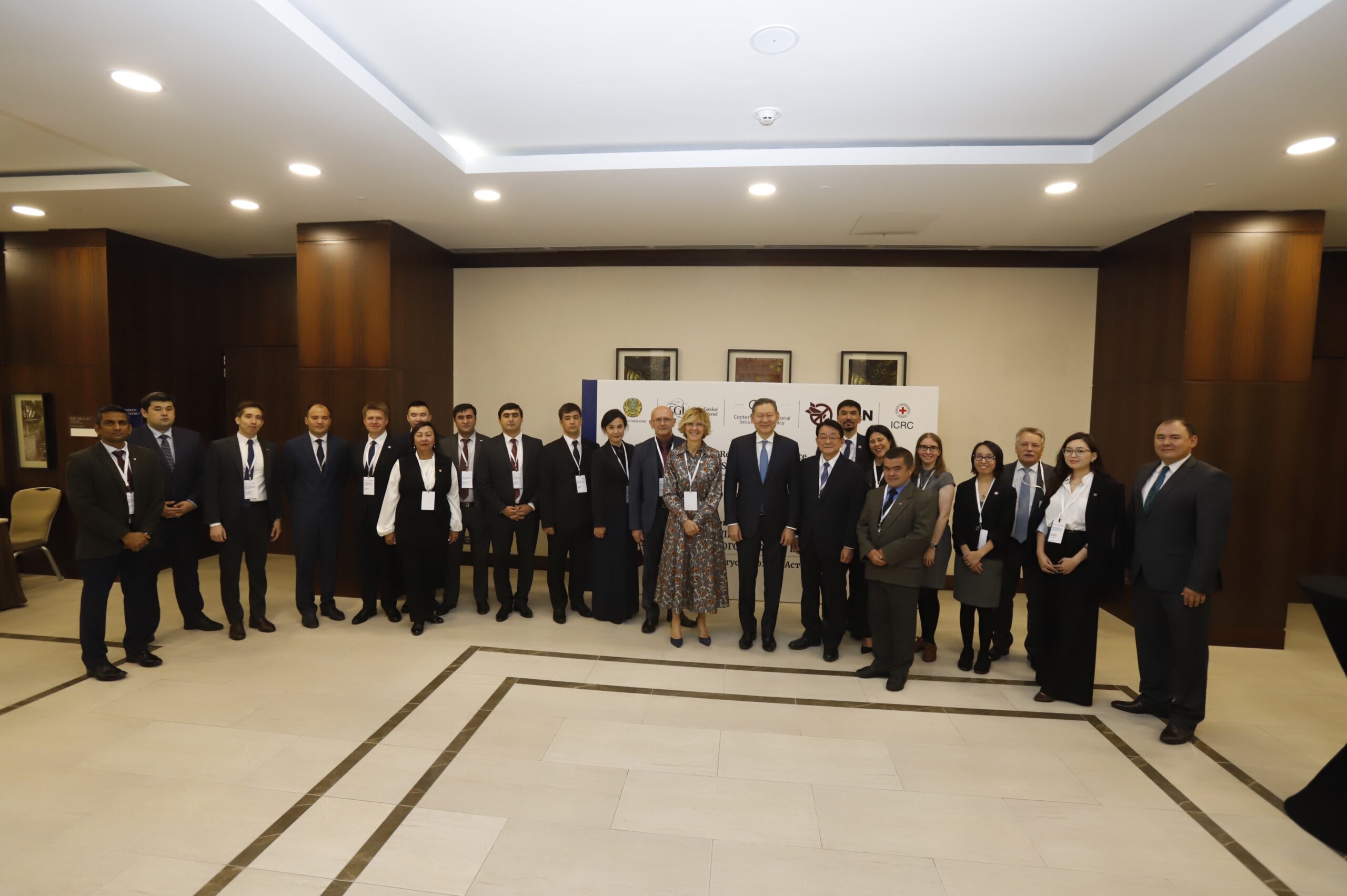
Participants of the regional conference in Astana pose for a group photo. Photo credit: Kazakh Foreign Ministry.
A somber reality prevails, he noted, offering “little reason for celebration.”
“Heightened distrust, geopolitical competition and a growing number of armed conflicts have only increased the dangers in our world,” he said, referring to Ukraine.
UN Under-Secretary-General Izumi Nakamitsu underscored the significance of Aug. 29 in commemorating Kazakhstan’s extraordinary role in forging an international prohibition on nuclear testing.
The enduring aftermath of these tests continues to impact generations of people who were exposed to a radiation fallout near the Semipalatinsk test site. Nakamitsu extended sincere appreciation to both the people and leadership of Kazakhstan, acknowledging their steadfast dedication to emphasizing the imperative of nuclear test eradication.
The Permanent Mission of Kazakhstan to the UN teamed up with the UN Office for Disarmament Affairs to organize an event with the participation of youth. Their mission was to cover a symbolic distance of 8.29 kilometers, where 8 represents August and 29 – the date, thereby promoting a healthy lifestyle and involving youth in the global movement to popularize the International Day Against Nuclear Tests.
Famous Hollywood actor Michael Douglas took to social media to express his support for the International Day Against Nuclear Tests and to commend the endeavors of young people and the UN.
In another part of the world, the Permanent Mission of Kazakhstan to the UN Office in Geneva organized a special event to commemorate the occasion and the 75th Anniversary of the Universal Declaration of Human Rights.
Permanent Representative of Kazakhstan Yerlan Alimbayev stressed that in the context of the declaration and universally recognized norms on the right to life, Kazakhstan’s anti-nuclear initiatives are particularly relevant today and require dialogue, negotiations and confidence-building measures.
Addressing the far-reaching repercussions of nuclear tests at the former Semipalatinsk test site, the Kazakh diplomat called for support for the triennial resolution on international cooperation and coordination for the human and ecological rehabilitation and the economic development of the region affected by nuclear radiation.
A thematic photo exhibition dedicated to the International Day against Nuclear Tests and the 32nd Anniversary of the closure of the Semipalatinsk nuclear test site has opened its doors at Bulgaria’s Sofia Library, part of the global series of events organized by Kazakhstan to promote nuclear nonproliferation and disarmament efforts, reports the Kazakh Foreign Ministry.
The photo exhibition is hosted at the prestigious Sofia Library, one of the largest cultural, educational and scientific support institutions in Bulgaria. It will be open to the public until Sept. 8.

